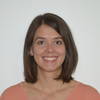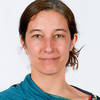User Tools
Sidebar
This is an old revision of the document!
Table of Contents
Atmospheric Composition
Description of the area
The Atmospheric Composition (AC) group aims at better understanding the chemical composition of the atmosphere and its effects upon air quality, weather and climate, while improving predictions from local to global scales. The AC group develops the Multiscale Online Non-hydrostatic AtmospheRe CHemistry model (MONARCH; previously known as NMMB/BSC-CTM). MONARCH contains advanced chemistry and aerosol packages, and is coupled online with the Non-hydrostatic Multiscale Model (NMMB), which allows for running either global or high-resolution (convection-allowing) regional simulations, and is coupled with an aerosol data assimilation system based on the Local Ensemble Transform Kalman Filter (LETKF).
The group contributes to a variety of forecasting activities. The dust component of MONARCH runs operationally at the first WMO Regional Specialized Meteorological Center for Atmospheric Sand and Dust Forecast (i.e., the Barcelona Dust Forecast Center, BDFC), and contributes to multi-model ensemble forecasts both at the WMO Sand and Dust Storm Warning Advisory and Assessment System Regional Center (WMO SDS-WAS RC) for Northern Africa, the Middle East and Europe, and the International Cooperative for Aerosol Prediction (ICAP). Both WMO Regional Centers are co-hosted by BSC and the Spanish Meteorological Agency (AEMET). The group also develops and maintains the CALIOPE air quality system (“CALIdad del aire Operacional Para España”), which provides high-resolution air quality forecasts over Europe and Spain using the in-house emission model HERMES. CALIOPE is currently based on the WRF meteorological model and the offline CMAQ chemistry model, and its transition to use MONARCH is in progress. The models and forecasts are enhanced by an intensive use of up-to-date observations, both for model evaluation and to feed the aerosol ensemble-based data assimilation system.
Since October 2016, the group hosts an AXA Chair on Sand and Dust Storms. This 15-year research programme is not only intended to support the two WMO SDS Regional Centers based at BSC, but also to widen the scope and relevance of the mineral dust research at BSC-ES. In October 2018 the AC group will start developing an ERC Consolidator Grant that focuses on dust mineralogy and its effects upon climate.
List of people involved
Carlos Pérez García-Pando

Head of the Atmospheric Composition Group
AXA Professor on Sand and Dust Storms
Ramón y Cajal Fellow
Interests: mineral dust
Bio:I was born in Barcelona (Spain, 1977). Industrial Engineer from the Universitat Politècnica de Catalunya (UPC, Barcelona, Spain, 2001) and Ingénieur des Arts et Manufactures from the Ecole Centrale Paris (France, 2001), Diploma of Advanced Studies and Ph.D. in Environmental Engineering from the UPC (Barcelona, Spain, 2006). After the completion of my PhD, I began my scientific carrier at the Barcelona Supercomputing Center (BSC) where I held the position of Mineral Dust Group Leader between 2006 and 2009. Thereafter, I moved to the United States where I have worked at the National Oceanic and Atmospheric Administration (NOAA/NCEP), the International Research Institute for Climate and Society at Columbia University (IRI), the Department of Applied Physics and Applied Mathematics at Columbia University and the NASA Goddard Institute for Space studies (NASA GISS). In October 2015, I was awarded with an AXA Chair of 15 years duration to develop my cross-disciplinary dust research program at the BSC. In 2016 I was also awarded with Spanish the Ramon y Cajal fellowship (I was ranked #1 in Earth Sciences). I joined BSC in October 2016 as Head of the Atmospheric Composition Group. My research focuses on understanding the physical and chemical processes controlling atmospheric aerosols, and evaluating their effects upon climate, ocean biogeochemistry, air quality and health.
Oriol Jorba
Interests: atmospheric chemistry, air pollution, meteorology, atmospheric modelling and feedback processes
Bio: Dr. Oriol Jorba, Co-Group leader of the Atmospheric Composition group of the Barcelona Supercomputing Center (BSC) holds a PhD degree on Environmental Engineering. His research expertise includes high resolution mesoscale meteorology and air quality, development of online meteorology-chemistry models, boundary layer, atmospheric chemistry studies and environmental impact assessment. He has lead the research project on the development of the multiscale chemical weather forecasting system NMMB-MONARCH (CGL2008-02818, CGL2013-46736) at BSC which is the official model used by the Barcelona Dust Forecast Center (BDFC), the World Meteorological Organization (WMO) Regional Meteorological Center specializing in Atmospheric Sand and Dust. He has participated in projects funded by the European Commission on air quality, specifically in aerosols, (APPRAISAL, EARLINET, FIELD-AC, ACTRIS1, ACTRIS2) and in the application of atmospheric modeling in HPC (IS-ENES, IS-ENES2, RETHINK big). He has been a Spanish representative member of the management committee of COST Actions ES1002 and ES1004, and is part of the International Technical Meeting on Air Pollution Modelling and its Application (ITM) scientific committee since 2012. He is an active member of the International Cooperative for Aerosol Prediction (ICAP).
María Gonçalves Ageitos
Interests: climate modelling, atmospheric chemistry, aerosols.
Bio: María Gonçalves Ageitos is Chemical Engineer by the University of Santiago de Compostela (2004) and holds a PhD in Environmental Engineering by the Technical University of Catalonia -UPC- (2009). She currently works as a tenure-track 2 lecturer at the Engineering Projects and Construction Department (DEPC) of the UPC, and as associate researcher at the Earth Sciences Department of the BSC-CNS. She teaches different subjects at graduate and undergraduate level on the knowledge areas of Environmental Sciences and Technology and Project Management of the engineering studies developed in the Terrassa School of Industrial, Aerospace and Audiovisual Engineering (ESEIAAT), supervises final degree and final master thesis, and actively collaborates in the PhD program of Environmental Engineering of the UPC. Her research interests lie on the atmospheric modelling field. By means of numerical models and thanks to High Performance Computing environments, she explores atmospheric processes and interactions in the short-term and climate scales, with a focus on atmospheric chemistry and aerosols. As such, she has collaborated in a range of national and international projects and initiatives focusing on atmospheric models development and evaluation (e.g. CALIOPE, NMMB-MONARCH) or regional climate modelling (e.g. ESCAT, MedCORDEX) and more recently Earth System Modelling (e.g. EC-Earth, AerChemMIP).
Marc Guevara
Interests: emissions, geographic information system, air quality modelling
Bio: Dr. Marc Guevara holds B.S. in Industrial Engineering (Technical University of Catalonia, Spain, October 2010) and PhD in Environmental Engineering (Technical University of Catalonia, Spain, December 2014). He is a postdoc researcher with 6 years’ experience in the areas of Emissions and Air Quality. His main expertise includes high resolution emission modelling (development, evaluation and improvement), air quality modelling, geographic information systems and environmental impact assessment. He is co-chair of the Emissions Working Group of the FAIRMODE community. He coordinated the development and implementation of an air quality forecast system for the Mexico City's Environment Secretary. He has participated in the Spanish air quality-related CALIOPE-And project and the FP7 Framework programme APPRAISAL, as well as in several national technology transfer projects related with air quality impact assessment. He has participated in capacity building and transfer of knowledge activities with technical people of the Environmental Ministry of Turkey (period of Execution: Jun 2013). He has coauthored 13 papers in international scientific journals and 8 communications to International conferences.
María Teresa Pay
Interests: atmospheric chemistry, air pollution, air quality modelling (forecast, evaluation and improvement) and environmental impact assessment
Bio: My research focuses on understanding the origin of air pollution by estimating the contribution from different sources to the air concentrations, and evaluating its effects upon climate and health. My core area of expertise is air pollution. I am also a modeller with large experience in cutting-edge High-Performance Computing and operational forecasting. After my PhD at the Barcelona Supercomputing Center (BSC, Spain), I moved to the L’École Polytechnique (France, 2013-2015) as a Postdoctoral Marie Curie Researcher where I delved into the use of models to find out the origin of pollution from meteorology to emissions. Since 2015, I work at BSC where I serve as Researcher in competitive projects. My work has resulted in 24 peer-reviewed papers (92% in Q1; h-index: 10; number of citations: 362, Scopus), 8 chapters in books/proceedings/reports, and 58 contributions to conferences/workshops (90% oral). I have organized an international workshop for the air quality community and an international summer school. I have participated in 20 international and national projects (8 as PI). I have co-advised 2 PhD students (1 in progress). I have worked in 5 leading research institutes, which have permitted me to create a vibrant network of international collaborations. Since 2015, I am an Associated Lecturer at the Division of Statistics (University of Barcelona) in Environmental and Life Sciences. My teaching work has resulted in 269 hours (55% theory lessons, 20% in Official Masters). My teaching has expanded my research interests towards Statistics, and provided enhanced statistical rigor in my air pollution analysis. Note that I coordinated the theory lessons in the Environmental Sciences Degree.
Sara Basart
Postdoctoral Researcher
Personal page
Interests: dust modelling and feedback processes, air quality, aerosols, meteorology, end-user products.
Bio: Dr Sara Basart (female) received a degree in Physics from the University of Barcelona (UB). She studied a Masters in Meteorology and Climatology a the University of Barcelona (UB). Dr Basart obtained her PhD degree in Engineering Environmental (Degree of European Doctor) at Technical University of Catalonia (UPC) in January 2012 while doing her research at different research centres (Centro de Investigación Atmosférica de Izaña, Spain, and Laboratoire des Sciences du Climat et de l'Environnement, France). Her main research background covers mineral dust modelling, air quality and aerosols. At present, Dr Basart is a researcher in the Barcelona Supercomputing Center (BSC). She is the scientist in charge of the WMO Sand and Dust Storm Warning Advisory and Assessment System (SDS-WAS) Regional Center for Northern Africa, Middle East and Europe, and the Barcelona Dust Forecast Center (BDFC), hosted in BSC. She also participates in international projects like the International Cooperative on Aerosol Prediction (ICAP) initiative and ACTRIS (ACTRIS and ACTRIS-2). She is leading the BSC participation in Copernicus (CAMS-84) and she is Leader Project Investigator of the EU project DustClim. Recently, she was elected as a Chair of the COST Action, InDust. She has authored or co-authored more than 30 peer-reviewed publications in international journals and book chapters. Furthermore, she has participated in capacity building and transfer of knowledge activities associated to European Commission and WMO programmes.
Martina Klose

Postdoctoral Researcher
MSCA Fellow
Interests (non-exclusive list): The physics of aeolian processes on Earth and other planets; dust aerosol modeling on different spatio-temporal scales; field and lab studies; environmental impacts
Bio: I have received my diploma (Master equivalent) and my doctoral degree (Dr. rer. nat.) in Meteorology in respectively 2010 and 2014 at the University of Cologne, Cologne, Germany. I stayed in Cologne as a postdoctoral research associate for one year and then worked in New Mexico, USA, for 2 years as a postdoctoral research fellow funded by the Deutsche Forschungsgemeinschaft (DFG, German Research Foundation). In November 2017, I joined BSC as a Beatriu de Pinós postdoctoral research fellow. My research interests include aeolian processes on all scales, their frequency, and impacts on Earth and other planets. My major research focus is to understand the physics of dust emission and to advance its parameterization in numerical models. Until now (01/2018), my work has resulted in 18 publications in peer-reviewed international journals (7 as the lead author; 4 reprinted as book chapters), the participation as a presenter and/or co-convener in 16 international conferences/workshops, the organization of 1 international workshop, and several invited visits/presentations at renowned research institutions around the world. Since 01/2018, I am associated editor of the journal Aeolian Research (Elsevier).
Enza Di Tomaso
Interests: mineral dust data assimilation, aerosol obsevations
Bio: Enza Di Tomaso has a degree in Physics from the University of Bologna in Italy, and a PhD in Engineering Mathematics from the University of Bristol in UK. She has worked as lecturer of Artificial Intelligence and Discrete Mathematics at the University of Bristol before moving to the field of atmospheric science, initially working for the Italian Research Council (CNR IMAA) on the retrieval of precipitation from satellite observations, and subsequently working at ECMWF, the European Centre for Medium-Range Weather Forecasts in Reading, UK, on exploiting satellite observations for numerical weather prediction under a fellowship programme of the European Organisation for the Exploitation of Meteorological Satellites (EUMETSAT). At BSC, she has expanded her interest to atmospheric chemistry, and in particular to aerosol data assimilation, implementing a scheme to ingest satellite observations into the BSC chemical transport model. This has meant the start of a new strategic research line within the Atmospheric Composition group of Earth Sciences department.
Matthew D. Dawson
Vincenzo Obiso
Jaime Benavides
Interests: urban air quality modelling, road transport emissions, urban wind dynamics, decision making
Manuel Porquet
Interests: Emissions, Geographic Information Systems, air quality modelling
Bio: Manuel Porquet holds B.S in Geology (Universidad de Zaragoza, 2011). He studied a “Master's in Land and Environmental Planning” (Universidad de Zaragoza, 2012). He spent 6 months working in AEMet, creating a digitised database for the Ebro Valley daily precipitations for the period 1981-2010. After that, he studied a “Master's in Geographical Information Systems (GIS) and Teledetection” (Universidad de Zaragoza, 2014) and, after being another 6 months in the IGME, he finished with honours his Master Thesis “Anysotropy of magnetic susceptibility of the Pyrenean Granites”, having published his results recently. At present, he is a support engineer in the Barcelona Supercomputing Center, and he is involved in updating and improving the emissions database of the HERMES model, the emission core of the Spanish air quality system CALIOPE.
Previously in the group
- Antonis Gkikas - Post-Doc MSCA Fellow
- Víctor Valverde - PhD student
- Lluís Vendrell - PhD student La Caixa Fellow
Internal group meetings
Working Group Meetings
- DATA ASSIMILATION - Enza Di Tomaso
- OPERATIONS - Miriam Olid
- AQ SERVICES & WEBSITES - Fran Toja
Projects and personal grants
Ongoing and funded
- AXA Chair on Sand and Dust Storms (AXA Research Fund)
- CAMS-81 (Copernicus)
- PAISA (Plan Nacional)
- Convenio SEDEMA (México)
- ACTRIS-PPP (H2020)
- NUTRIENT (Plan Nacional)
- ACRONNIM (MSCA - Matt Dawson)
- DUST.ES (BdP - Martina Klose)
- FPI-CGL2013-04673 (Jaime Benavides)
Funded starting soon
- K-Dust (KISR)
- FRAGMENT (ERC Consolidator Grant - H2020)
- SOLWATT (H2020)
Submitted
- LIFE+ CAPACITy (LIFE H2020)
- ORESTIN (H2020)
- New Convenio Mexico (SEDEMA)
In preparation
- FORCES (H2020)
- Encomienda AEMET (AEMET)
- UIA Granollers (H2020)
Future potential
- CAMS50
- AQ Generalitat
- AQ BCN
Non funded international initiatives
- ICAP
- TFMM
- FAIRMODE
Non funded initiatives
Experiments and data guidelines
Papers status
Weekly Reporting
AC Trello
In the AC group, we use Trello to follow our activities.










